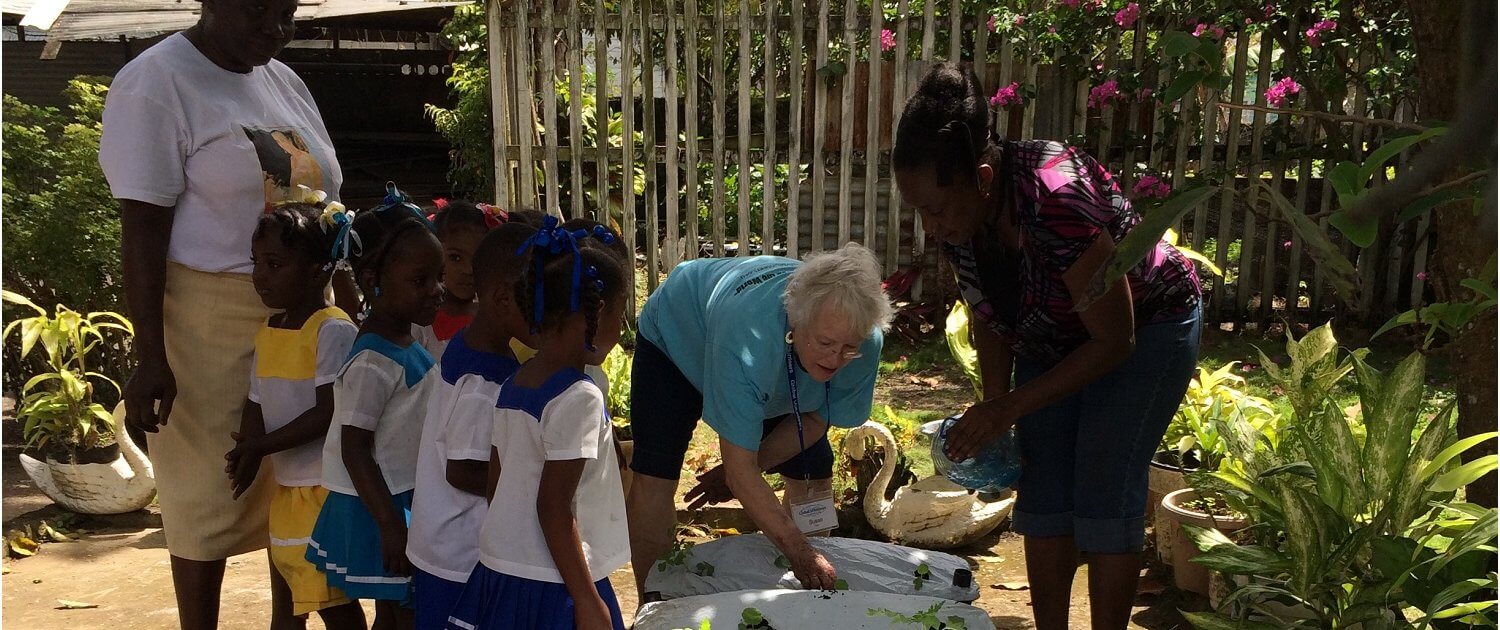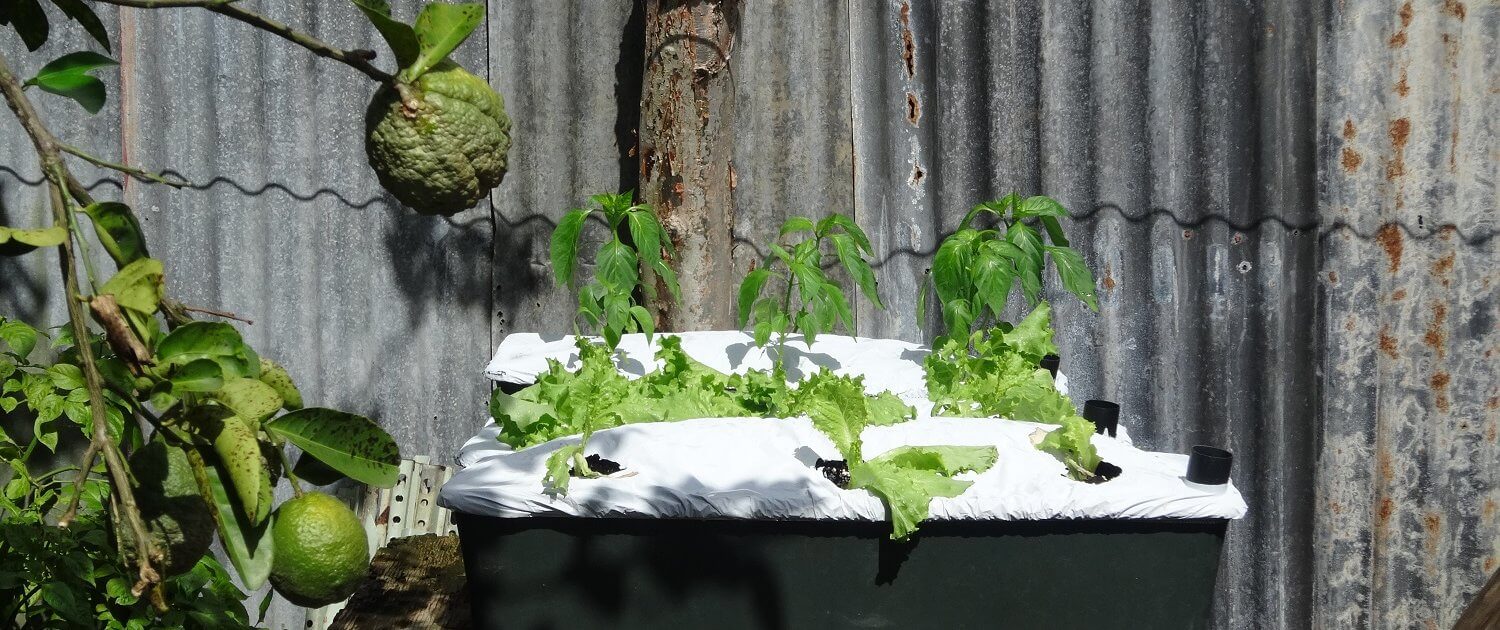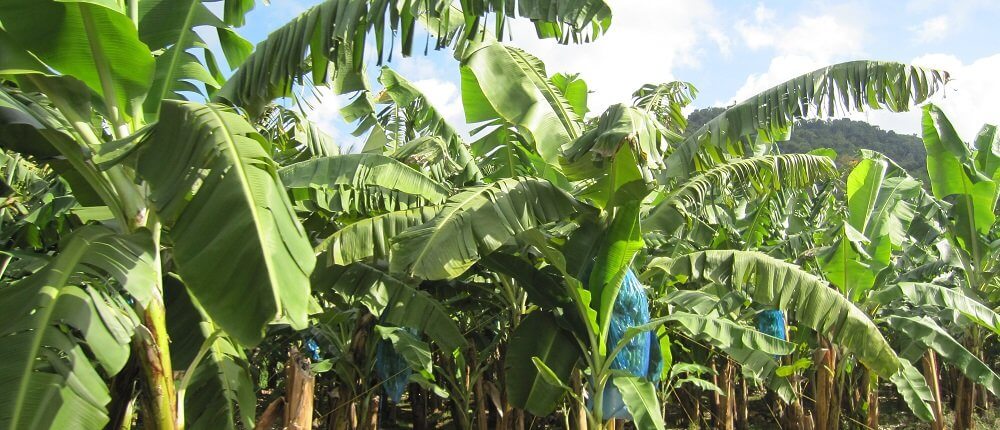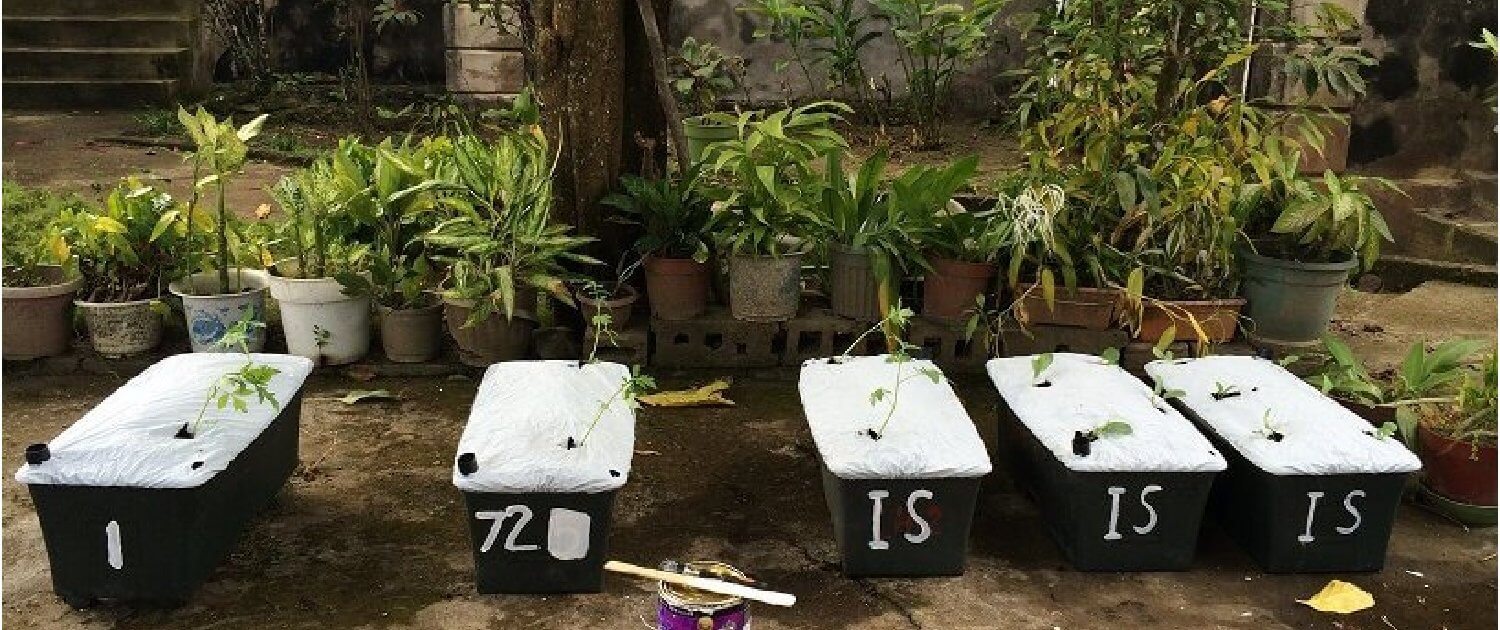One of Global Volunteers’ most successful projects on the island of St. Lucia is the installation of EarthBoxes throughout the village of Anse La Raye, a small fishing village with approximately 3,000 residents. Since 2012, volunteers have ventured out to share a spade and a bit of sun with their new island neighbors, and planted more than 150 household and school gardens with community members.
Although basic in concept, the EarthBox is an advanced gardening technology. The garden’s unique construction consists of the durable plastic box, an aeration screen, and a water collection tube. Volunteers fill the container with growing medium and plant the seedlings of four plants: cucumbers, peppers, tomatoes, and peas. Together, these vegetables will produce approximately three to four times as much produce as they would in a dirt garden – with the added bonus of requiring much less work and water than traditional gardening. One to two children or one adult can obtain their necessary mico-nutrients for a year from the EarthBox’s harvests—making it an important technology in improving the health and nutrition of local families.
To truly understand the significance of this project, however, it is best to know a bit about St. Lucia history.
Like many of its neighboring islands, St. Lucia’s tropical setting makes it ideal for growing a variety of fruits and agricultural commodities. It became a major grower and exporter of bananas during the mid-20th century. Large-scale, multi-national corporations like a Dole Food Co., Chiquita Brands International, or the United Fruit Company owned and operated large banana plantations throughout the Carribbean.
In St. Lucia, Geest, an international fruit importer, was responsible for the island’s banana production. The business success of these companies meant both the politics and economies of the local communities were beholden to the production of bananas. The companies forced out other competing industries, and although these companies were generating substantial wealth, many companies chose to reinvest gains into the company instead of in the communities that supported their business.
When geopolitical trends began to change nearly 40 years later, however, the fruit companies were forced to loosen their control on the islands. The number of banana plantations decreased in number, but they left behind tracts of land wasted from the process of mass-producing bananas. After so many years of dominating the local economy, when the banana companies left the island, very few of the local people were able to afford the available land for family homes or commercial growing.
So, many people chose to live in towns like Anse La Raye, and now have little to no space for gardening or vegetable cultivation—meaning that, while they live in a tropical setting conducive to self-sufficient food production, they have little opportunity to supplement the traditional diet of carbohydrates and protein with fresh vegetables.
This is where the EarthBox makes the greatest impact. Requiring minimal space, little maintenance, and very few inputs, it is an ideal technology for Anse La Raye families. With an EarthBox, families can introduce vegetables into their children’s lives at an early age, and with them, the vitamins and nutrients essential for steady growth and development. Across the village, EarthBoxes can be seen on patios, porches, and even roofs with different varieties of plants as families try new combinations of vegetables each year. Global Volunteers formalized a partnership with EarthBox in 2016 to provide the gardens to communities offering the Reaching Children’s Potential (RCP) Program worldwide.
Global Volunteers’ St. Lucia staff work with families to ensure the gardens are replanted each growing season. Each volunteer team learns how to plant and care for an EarthBox and leads the garden maintenance and distribution projects. Chem says that every week she has at least one villager stop her and ask if they can have an EarthBox for their own home. Thanks to donors and volunteers, St. Lucia’s EarthBox program is helping to improve families’ health!






